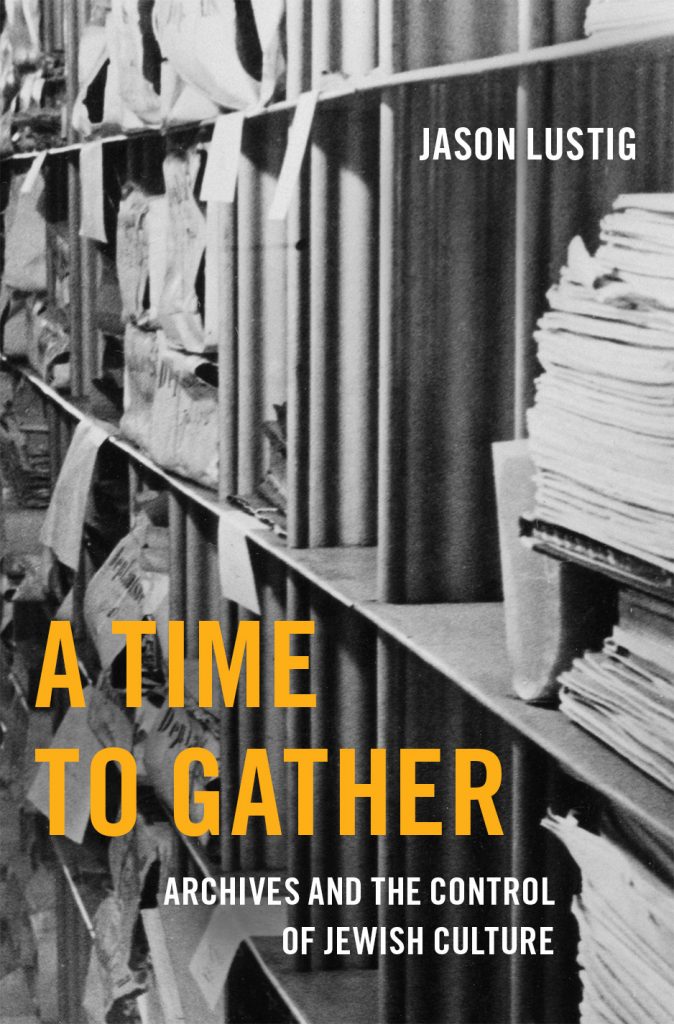
A Time to Gather: Archives and the Control of Jewish Culture (Oxford University Press, December 2021) is the first systematic history of twentieth-century Jewish archives. It argues that collecting and preserving archives was not only about the past, but also about the future. Jewish archival projects and initiatives in Germany, the United States, and Israel/Palestine show how the question of who could claim to “own” history was a contentious battleground, both before the Holocaust and especially in its aftermath in the context of the restitution of Nazi-looted archives.
Where to Order
Advance Praise for A Time to Gather
“A Time to Gather offers a fascinating and highly stimulating account on the centrality and function of the archive in the ruptured 20th century Jewish history. Based on an impressive range of empirical records the book provides epistemological and historical substance to the often acclaimed ‘archival turn’ in the Humanities.”
Elisabeth Gallas, author of A Mortuary of Books: The Rescue of Jewish Culture after the Holocaust
“George Orwell famously wrote that ‘he who controls the past controls the future.’ Jason Lustig’s pathbreaking and deeply researched new study tells the story of how the archives from which we study modern Jewish history were formed by leaders who sought to shape this history following their own nationalist assumptions. Lustig deftly moves from Europe to Israel to America and back again, tracing the competing efforts to build the ultimate “total archive” and thereby shape the future of the Jews by controlling the relics of its past. There is simply no study like it.”
Joshua Shanes, author of Diaspora Nationalism and Jewish Identity in Habsburg Galicia
“With incredible depth of research and force of analysis, Lustig draws readers’ attention to the stuff—the ‘epistemic things’—that allow them to know their pasts. He argues that the process of creating an archive is as much about preserving the past as it is about making a claim on the present and future. Leading the reader across the twentieth century, from Germany to Jerusalem to Cincinnati and New York and, finally, to the cloud, Lustig tells the story of how modern Jews gathered their past to make sense of an era of destruction and tumult.”
Lila Corwin Berman, author of The American Jewish Philanthropic Complex